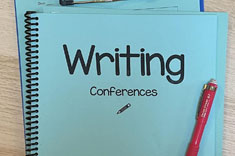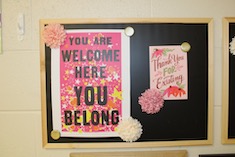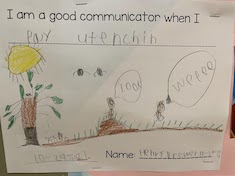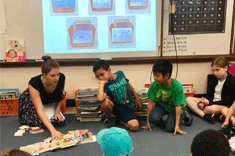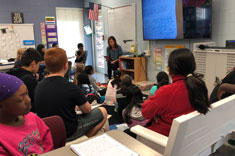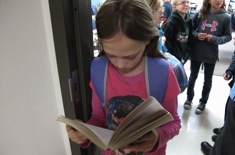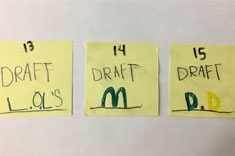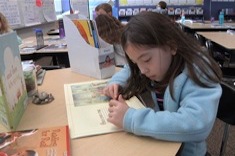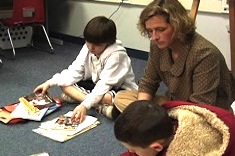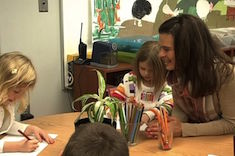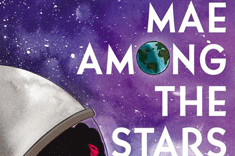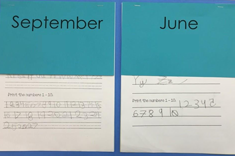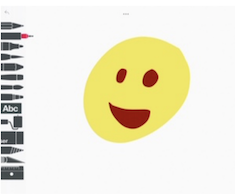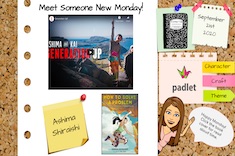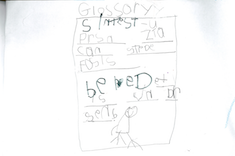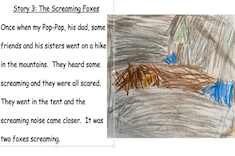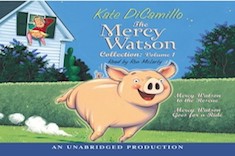3rd
Latest Content
Status of the Class for Readers and Writers
Matt Renwick reflects on the importance of building students’ identities as readers and writers and the power of a daily status of the class. Download a template to put this routine in place in your own classroom.
Giving Feedback to Energize Writers
Josie Stewart and Hannah Tills ponder the importance of energizing writers with feedback. They offer tips to ensure feedback uplifts writers.
A Three-Part Conferring Kit
Bitsy Parks shares a simple three-part conferring kit that will position anecdotal notes to guide instruction.
Using Images for Rehearsal in Persuasive Writing
Melanie Meehan makes a case for the power of pictures to provide a foothold and access point for students to enter the writing pathway. She shares an example of using images to engage in persuasive writing strategies.
Tips for Selecting Inclusive Texts
Hannah Tills and Josie Stewart challenge themselves to select more inclusive texts so all students feel as though they belong. They offer six suggestions to help us examine our bookshelves, thinking, and curriculum.
What Is Communication? A Mini-Inquiry Project and Booklist
Bitsy Parks leads her first-grade class in a study about communication to strengthen their socially distanced and muffled-by-masks community. Included is a booklist.
The Seasons of Classroom Libraries
Melissa Quimby shifts her classroom library throughout the year so that as her students grow as readers, her library will continue to nourish them.
Formative Assessment From Share Sessions
Ruth Ayres outlines different kinds of share sessions and different formats for the share, including some that take advantage of technology.
Write Like Nancy
Inspired by a stranger on a walk, Jen Court clarifies the importance of sharing our writing lives with others. She identifies three important qualities of a writing community.
The Classroom Library: Building Bridges
Cathy Mere presses to help children take the first steps in growing a sustainable reading life that carries beyond the classroom walls. She offers ways to build bridges to the school and public libraries as an essential step.
Helping Young Writers Make Plans
Tammy Mulligan promotes independence in her student writers by supporting them in creating writing plans. A download of a planning template is included so your students can create writing plans, too.
Ten Ways to Celebrate Writers
Jen Court gives 10 ways for students to share and celebrate their work as writers. Two downloads are included for you to use in your classroom.
Picture Books that Help Construct a Wider Definition of Home
Stella Villalba compiles a book list about the topic of home. She shares the way she allows students to co-construct their own understanding of home by using picture books that provide a variety of lenses through which to view the topic.
Four Keys to Making Workshop Work
Bitsy Parks reminds us of four key components of running a workshop and offers advice for making workshop work.
Bring In the School Year Like a Grandma
Julie Johnson reflects on how to help students know they belong and are valued in a classroom community.
One Instructional Strategy Changes a Reading Community: Status of the Class
Mandy Robek reminds us of the power of a status of the class to build a reading community.
A Roving Student Conferrer
Tammy Mulligan encourages students to support their peers as writers by being a “roving student conferrer.” When we enable students to take on the role of the teacher, it helps solidify what they know, as well as take pride in their writing skills.
Reasons to Launch Writer’s Notebooks with Primary Writers
Mandy Robek shares keys to knowing when to launch writer’s notebooks with primary writers.
Offering Playful Choice to Show Learning
Tammy Mulligan shares her quick thinking when students are bored with book clubs and reminds us all of the importance of offering playful choice for students to show their learning.
Mother Language Day and Tradition Presentations
Bitsy Parks shares special events that help students widen their scope of acceptance and appreciation for the differences among us.
A Complete Circle: Identity, Growth, and Community
Bitsy Parks offers key end-of-the year activities that allow students to reflect and notice their identities, growth, and community as readers and writers.
Words of Wisdom and Passing the Torch
Melanie Quinn shares a fun activity to help current students share advice for next year’s class.
Importance of Talk in Writing Workshop
Julie Johnson reminds us of important mindsets to adopt to allow students the space and permission to talk while composing. When students talk as writers, they have opportunities to create new understandings, build relationships, and validate each other.
Online Routines to Create Energetic Reading Communities
Melissa Quimby shares online routines to strengthen the class reading community.
Assessing Students Online: Small and Powerful Moves
Tammy Mulligan shares small and mighty moves when assessing students online.
Building Writer Relationships with Author Studies
Matt Renwick shares creative ways teachers in his school celebrate authors.
Book Series Joy
Bitsy Parks shares the way a series study enriches the reading lives of students and serves as an intervention to help readers grow.
Making Something Together: Shared Writing Online
Tammy Mulligan finds shared writing is her go-to strategy for teaching young learners online.
Supporting Students as They Exit Intervention with Series Books
Tara Barnett and Kate Mills write about the power of series books in helping young readers build skills and independence as they exit intervention programs.
Changing How I Teach Small Groups
Tammy Mulligan listens to students and adapts her small-group instruction as they share how they learn.
Browse Content By
Type
Category
- Assessment Tools
- Big Fresh Archives
- Booklists
- Choice Numeracy
- Classroom Design
- Common Core
- Community Building
- Conferring
- Content Literacy
- Digital Literacy
- English Language Learners
- Equity
- Family Relations
- Free Samples
- Guiding Groups
- Leadership
- Literacy Coaches
- Mentor Texts
- Minilessons
- New Teacher Mentors
- Podcasts
- Poetry
- Quote Collections
- Reading Strategies
- Self Care
- Struggling and Striving Learners
- Talking and Listening
- Teacher Study Groups
- Teaching Reading
- Teaching Writing
- Word Study and Vocabulary
Author
- Melissa Quimby
- Nawal Qarooni
- Gwen Blumberg
- Julie Cox
- The Lead Learners
- Hannah Tills
- Josie Stewart
- Ruth Metcalfe
- Mallory Messenger
- Becca Burk
- Jodie Bailey
- Vivian Chen
- Mary Brower
- Tiffany Abbott Fuller
- Stephanie Affinito
- Ruth Ayres
- Leigh Anne Eck
- Heather Fisher
- Shari Frost
- Julie Johnson
- Suzy Kaback
- Gigi McAllister
- Shirl McPhillips
- Melanie Meehan
- Cathy Mere
- Debbie Miller
- Tara Barnett and Kate Mills
- Tammy Mulligan
- Dana Murphy
- Bitsy Parks
- David Pittman
- Brenda Power
- Heather Rader
- Matt Renwick
- Mandy Robek
- Christy Rush-Levine
- Gretchen Schroeder
- Jen Schwanke
- Brian Sepe
- Katherine Sokolowski
- Stella Villalba
- Jennifer Vincent
Grade Level
Choice Literacy Membership
Articles
Get full access to all Choice Literacy article content
Videos
Get full access to all Choice Literacy video content
Courses
Access Choice Literacy course curriculum and training



